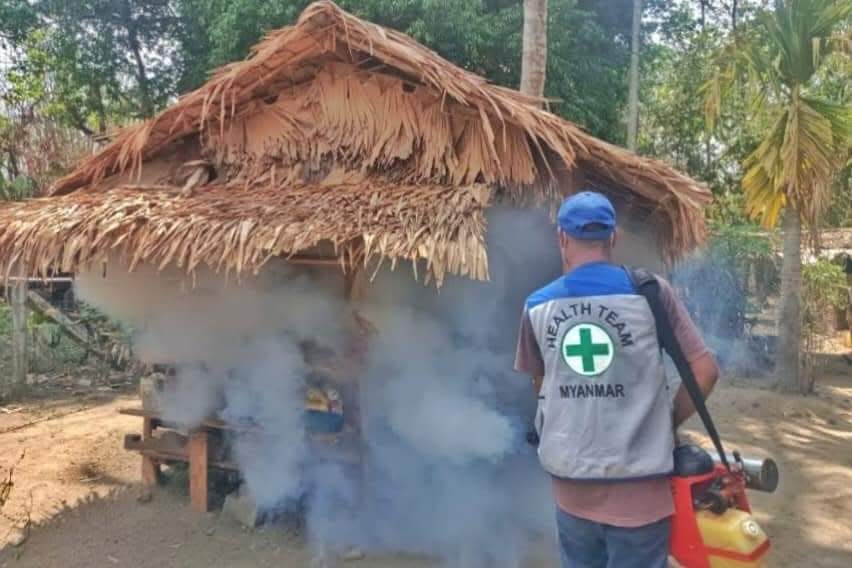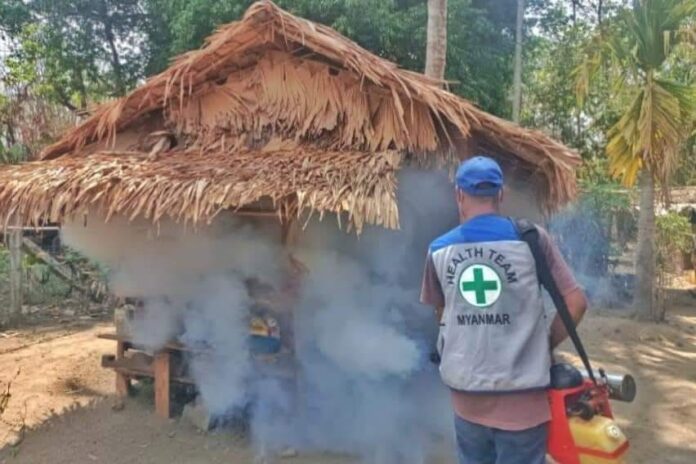Mon State is seeing a rise in severe dengue fever cases, especially among children under the age of 15, as the early monsoon season brings increased mosquito activity, according to local health authorities.
Health officials report that children in multiple townships across the state have been diagnosed with Stage 4 dengue, the most serious form of the disease. While Mon State typically sees an increase in dengue infections in June, the current surge in May is attributed to weather changes and heavy rainfall, which have created favorable breeding conditions for mosquitoes.
A health official from Chaungzon Township confirmed that more than 20 children have been hospitalized in the area so far this month, adding that 2025 is being regarded as an “outbreak year” for dengue. “We’re seeing cases across nearly every village, with some patients requiring blood transfusions due to reaching Stage 3 or 4,” the official said.
In addition to severe cases, many more patients with Stage 1 and Stage 2 dengue are being treated at rural health centers and clinics throughout the region.

Children with weakened immune systems are especially vulnerable, and health experts are urging parents to ensure children receive nutritious meals and avoid mosquito bites. The official explained, “When children don’t eat well, their immune system weakens. That makes them more susceptible. Some don’t get tested or go to clinics when they have a fever, so by the time they’re treated, the illness has already progressed to Stage 4.”
Data from the Mon State Health Department shows that over 100 children under 15 have contracted dengue fever so far this year, with at least one death reported.
Dengue fever is transmitted by the Aedes mosquito, which breeds in clean, stagnant water. The health department, including the junta’s health authorities, is urging the public to follow the “Cover, Empty, Clean, Inspect” strategy to prevent mosquito breeding during the rainy season.
Meanwhile, health officials have noted that internal displacement and labor migration into areas controlled by the New Mon State Party, such as the Ye Chaung Phyar region, are contributing to the rise in dengue and malaria cases. Political instability and population movement are creating additional challenges for disease control in these areas.

